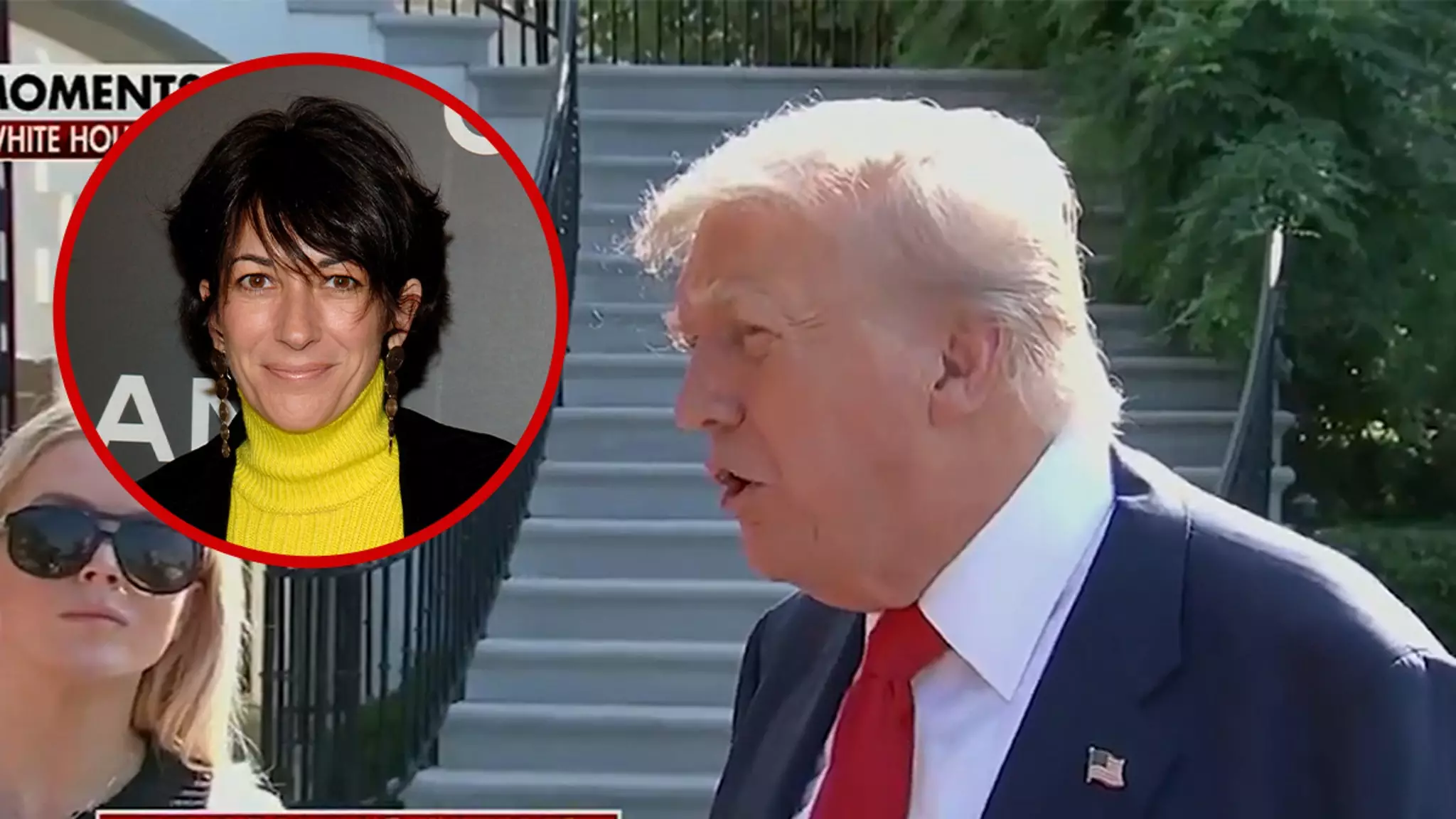The recent ambiguity surrounding a potential pardon for Ghislaine Maxwell exposes more than just a legal debate—it reveals the intricate and often opaque power dynamics that define American politics at its core. President Donald Trump’s sudden shift from a firm denial to a hesitant openness about pardoning Maxwell indicates a deeper wrestle for influence, control, and narrative dominance within his administration. While official statements heavily emphasized that no such discussions were taking place, Trump’s spontaneous remarks suggest that the decision-making process is far from closed. This flip-flop reflects a broader pattern among political leaders who often use ambiguous language as a strategic tool—deliberately leaving room for maneuver, while publicly asserting certainty. It hints at a behind-the-scenes tug-of-war between factions within the White House, FBI, and Department of Justice, each vying to shape the public’s understanding and position themselves favorably. The inconsistency in messaging fuels suspicion that these debates extend beyond legal strategy into realms of personal loyalty, political calculation, and perhaps even future influence.
The Power of Public Perception and Media Influence
The media’s role in amplifying or constraining political maneuvers in high-profile cases like Maxwell’s cannot be overstated. The White House’s initial categorical dismissal aimed to control the narrative, possibly to placate a segment of Trump’s base or avoid igniting a partisan firestorm. Yet, the president’s own words on the White House lawn dismantle the carefully crafted image of unwavering resolve. The power of live media interviews inevitably exposes fissures within the administration’s messaging framework. Such public statements serve as signals to various political actors and the conspiracy-minded base that the case remains unsettled, ripe for opportunistic manipulation. This media-driven dynamic forces politicians to balance transparency with strategic ambiguity—a dance that can either strengthen or undermine their authority depending on subsequent developments. In this context, Trump’s equivocating response unearths an uncomfortable truth: the president may be more influenced by public opinion and media narratives than by the legal intricacies of the case.
The Justice System’s Strange Bedfellows
The involvement of Deputy Attorney General Todd Blanche conducting interviews with Maxwell raises eyebrows and suggests an unprecedented level of direct engagement in a defendant’s case. Typically relegated to line prosecutors, such high-level departmental interactions evoke questions about the judiciary’s independence and the extent of political interference. These extraordinary moves hint at a justice system under tension—caught between the demands of accountability and the political fallout surrounding Epstein’s network. Meanwhile, the actions of Attorney General Pam Bondi, especially her previous comments about Epstein’s “client list,” offer a glimpse into the intense domestic debate over secrecy, transparency, and accountability. The very fact that top officials vacillate between asserting and denying the existence of confidential files demonstrates how deeply politicized this saga has become. As public scrutiny intensifies, questions about information suppression, investigative integrity, and potential cover-ups loom large, fueling a distrust that could haunt the administration for years.
Conspiracy, Power, and the Fragile Truth
At the heart of this unfolding controversy lies a complex web of conspiracy theories, political loyalty, and the quest for truth. The Epstein-Maxwell case has long been fertile ground for speculation, fueled by rumors of elite complicity, hidden power structures, and clandestine dealings. Trump’s alleged 50th birthday message to Epstein, as reported by the Wall Street Journal, encapsulates the tangled reality where personal history, public persona, and political ambition intersect. For his supporters, such revelations reinforce narratives of elite corruption, offering a potent rallying cry against a perceived establishment that operates in shadows. Conversely, critics see this as evidence of a deeply ingrained pattern of abuse and cover-up—a systemic failure that refuses to be exposed.
In the end, the Maxwell saga is much more than a legal or political issue. It questions the very foundations of transparency, accountability, and justice in a nation increasingly divided on truths and illusions. Whether Maxwell receives a pardon or not, the controversy serves as a mirror reflecting the profound struggles over power, influence, and the elusive pursuit of genuine truth in modern America.

Leave a Reply